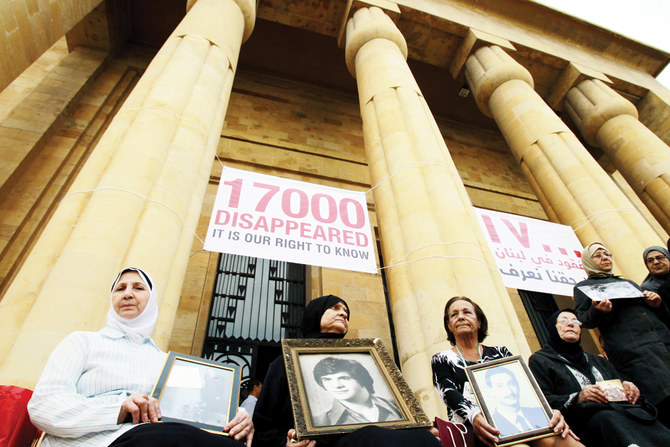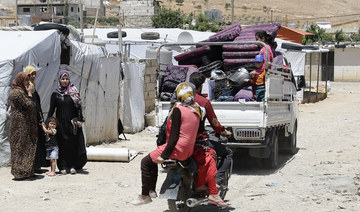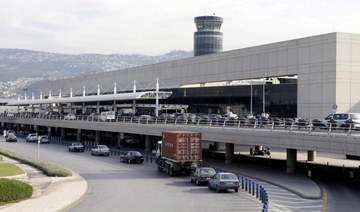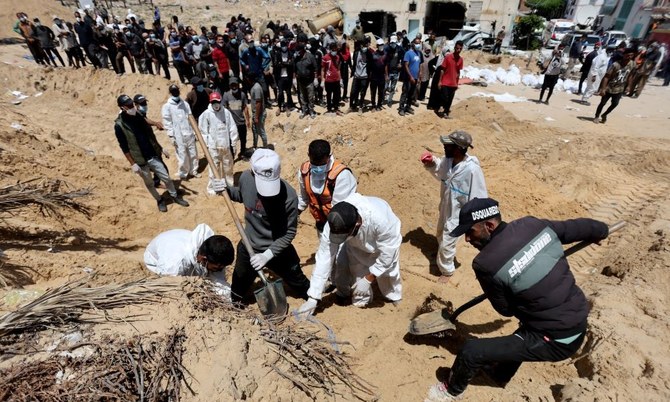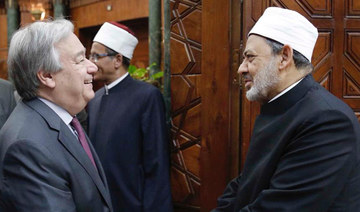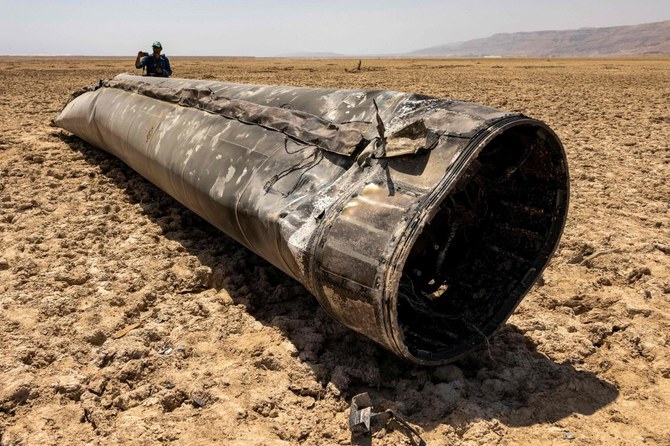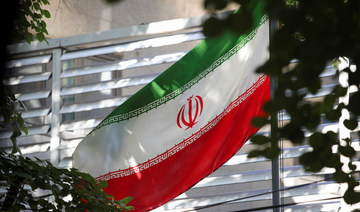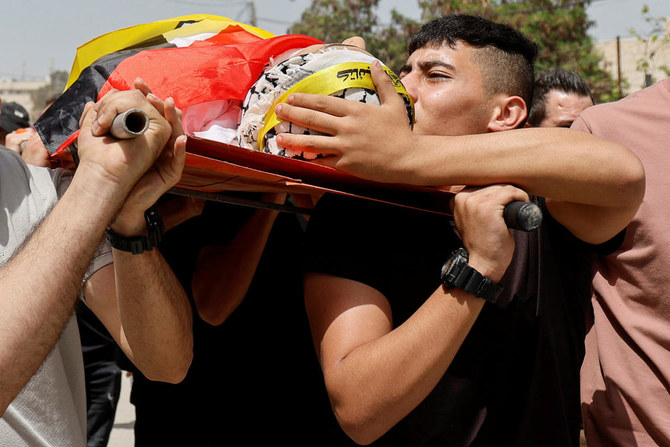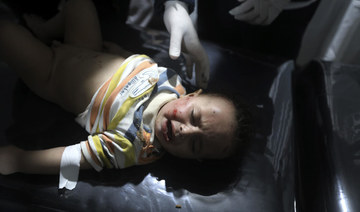DUBAI: Between 1975 and 1990, in addition to the estimated 120,000 people who lost their lives in the civil war, thousands of Lebanese went missing. The uncertain fate of the missing citizens remains a painful reminder of the conflict that ravaged the Middle Eastern country.
Neither the passage of time nor shifting political alignments has eased the suffering of the parents, siblings, spouses and children whose loved ones went missing during the 15-year period.
On the occasion of the International Day of the Disappeared, the International Committee of the Red Cross (ICRC) said more needed to be done to alleviate the pain of the families left behind.
The day is observed on August 30 every year. The ICRC is one of the many organizations that has been pushing Lebanese authorities since the end of the civil war to be more accountable.
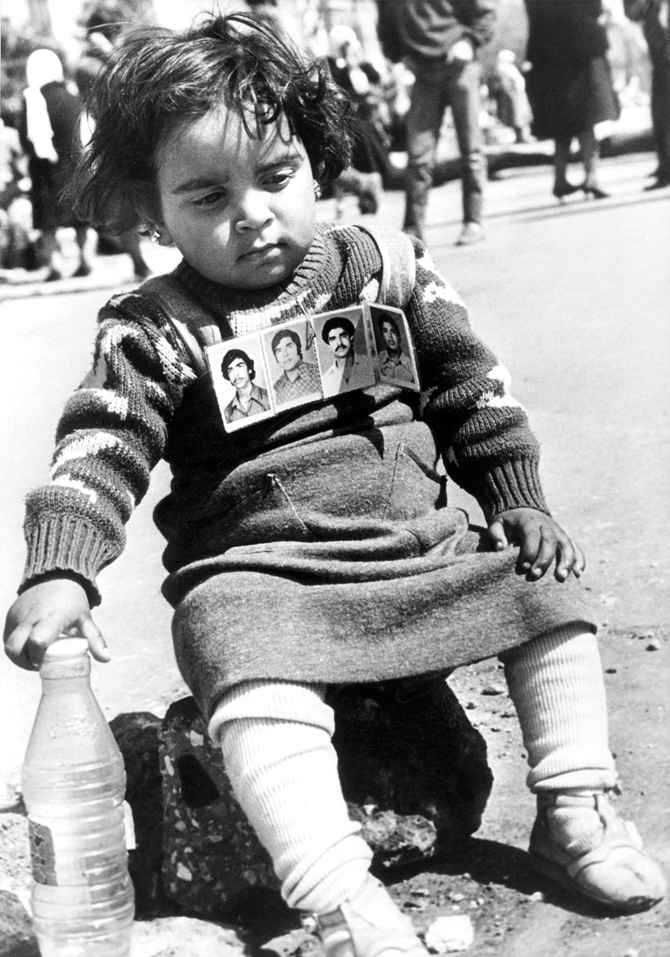
A Lebanese girl sits with a necklace of photos of missing members of her family during a protest sit-in in West Beirut in 1985. (AFP file photo)
“People whose relatives are missing exist in a state of limbo,” said Meike Groen, deputy protection coordinator in charge of the missing for the ICRC delegation in Lebanon. “In addition to many adversities — administrative, legal economic, social etc — emerging from the disappearances, vital questions related to the fate of their loved ones, and to their own social situation remain unanswered sometimes for decades.”
For the commemoration of the International Day of the Disappeared, the ICRC will organize an interactive exhibition where the public is invited to know more about the work it is doing with regard to civil-war disappearances.
It is estimated that 17,000 people went missing during the civil war. Some of them were kidnapped by fighters while others were taken from their families and kept in secret prisons or killed.
Since 2012 the ICRC has been preparing the ground for a state-led process to clarify the fate of missing persons. According to Groen, this includes efforts to help the authorities honor their legal obligations to collect information, such as disappearance data and biological reference samples that could prove useful in identifying missing persons.
IN NUMBERS
17,000 - People who went missing during Lebanon’s civil war
120,000 - Estimated fatalities as a result of the war
76,000 - People displaced within Lebanon as of 2012
1 million - People who fled Lebanon due to the civil war
In 2014, the ICRC initiated a set of activities under a project entitled “Accompaniment of Missing Persons’ Families” to help families cope with the uncertainty about the fate of their loved ones.
The program was launched following a 2011 assessment that showed the distress afflicting the families of the disappeared.
“Accompaniment of families basically means walking by their side,” Groen told Arab News. “While in Lebanon individual support and referrals are provided when possible, the program first seeks to create opportunities for families to meet others in the same situation and be updated about the efforts of the civil society and international organizations to help clarify the fate of the missing.
“This helps them feel less isolated. They are then invited to participate in psychosocial group discussions and memorialization sessions that allow them to reflect on their lengthy experience.
“All group meetings end with the creation of small family committees with the intention of fostering continuous awareness-raising.”
The uncertain fate of thousands of missing Lebanese is a constant reminder of the multi-confessional country's 1975-1990 civil war
EnforcedDisappearances @ICRC-lbhttps://t.co/TQsDc3YRHJ pic.twitter.com/N2tiO7GxUS— Arab News (@arabnews) August 30, 2019
But while organizations such as the ICRC are doing their bit, more needs to be done on a governmental level, Groen said.
“Families whose loved ones went missing have the right to know what happened to them,” she said. “This right is enshrined in international humanitarian law. As more time goes by, it becomes ever more difficult to clarify the fate of missing persons. The parents need answers. Time is of the essence, plus it is crucial to keep the discussion going.
“Our experience in other countries, such as Bosnia, Kosovo, Georgia and others, shows that resolving the issue of missing persons helps in relieving tensions and promotes healing of wounds.”
Until recently, no legislation was in place regarding the missing in Lebanon. However, on Nov. 12, 2018, the Lebanese parliament passed the Law on the Missing and Forcibly Disappeared (Law 105), acknowledging the right of families to know the fate of missing loved ones.
“The legislation is a very positive step to finally give answers for the families,” Groen told Arab News.
So far, the ICRC has documented about 3,000 missing persons cases and continues to collect information, but unfortunately there are no centralized lists of missing persons at the national level.
The ICRC has been building its own consolidated list by contacting local authorities, political parties and NGOs and gathering information from many other sources, such as newspapers and the families of the missing. However, it is still a work in progress.\
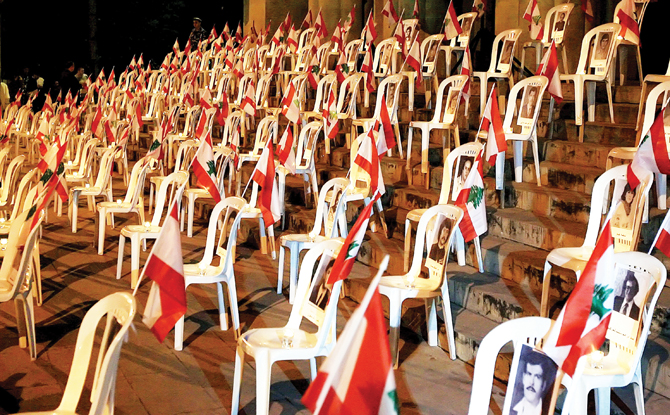
Lebanese flags ad candles decorate pictures of Lebanese civilians who went missing in Lebanon’s 1975-1990 civil war, during a ceremony to honor them in Beirut in 2007. (AFP)
According to Groen, even in cases where the family chooses to believe that their loved one is dead, it is still a challenge because there is no body to bury and no rituals that elicit social support.
“This has been continuing for 40 years, so it has become a generational problem for families, impacting children and grandchildren.”
After the civil war ended, Lebanon’s parliament passed a general amnesty law in 1991 that saw former faction leaders breathe a sigh of relief and move on to politics.
Law 105 gives families the right to know the place of abduction or detention of their loved one, as well as the whereabouts of their remains and the right to retrieve them. To do this, an official commission of inquiry will need to gather testimonies and investigate mass graves.
Ghassan Moukheiber, who co-drafted Law 105, told the AFP news agency earlier this year that political will was key to moving forward.
“A number of parties that were once militias and have ... a past of war crimes have started to at least tentatively fear this commission’s future work,” he said.
“In what mass grave should the inquiry begin? There are burial grounds all over Lebanon, in every area once under control of armed groups. Choosing where and how to exhume these graves will require wisdom and courage.”
For her part, Groen said the ICRC stands ready to provide technical and advisory support towards the creation of “an independent and non-discriminatory national commission.”
Only time will tell if political parties will be more cooperative and governments more active in investigating the fate of Lebanon’s missing.



